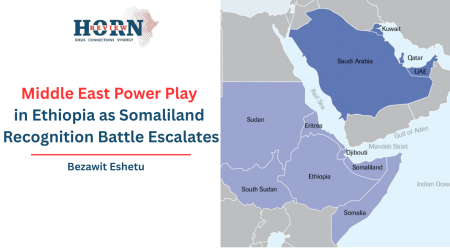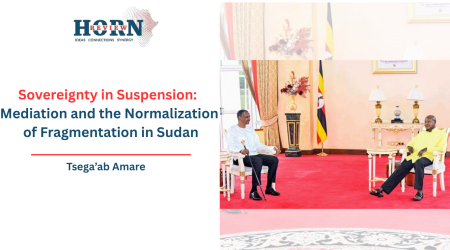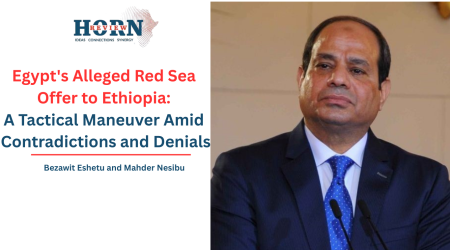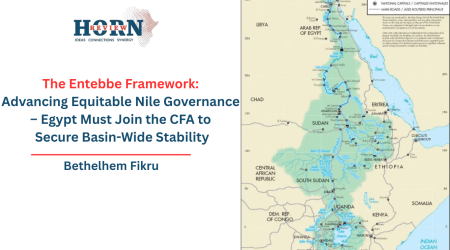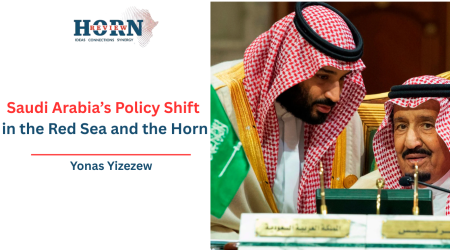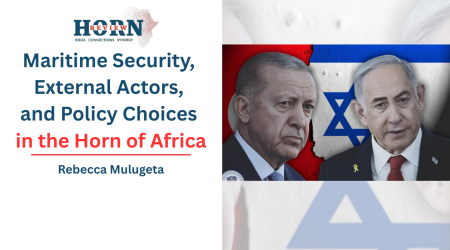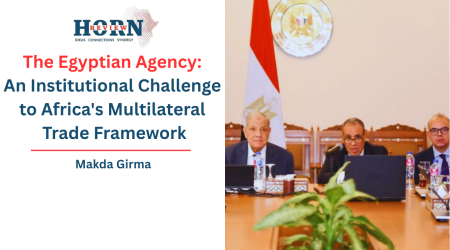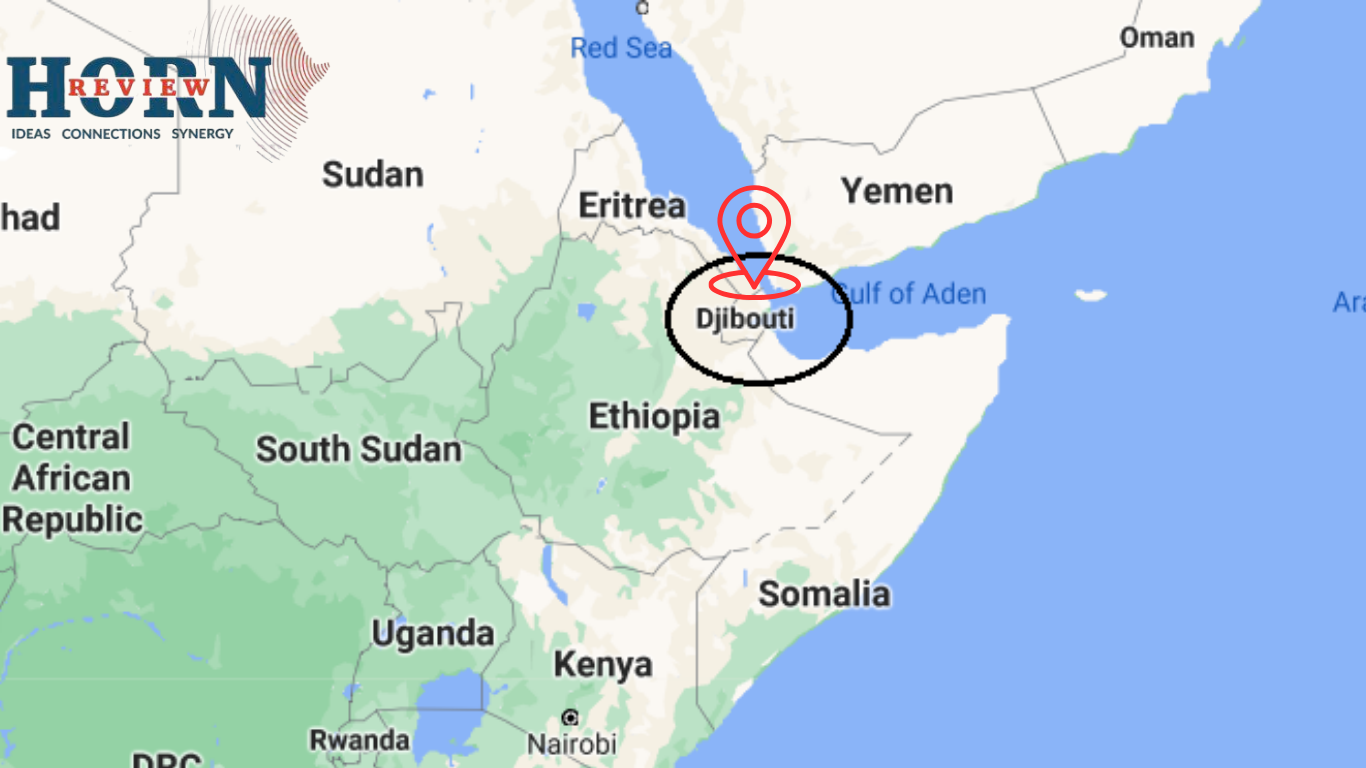
12
Jun
Djibouti’s Strategic Posture in the Shadow of Renewed Horn Tensions
No serious observer of the Horn of Africa can afford to view the prospect of renewed hostilities between Ethiopia and Eritrea as either remote or strategically irrelevant. While the region is no stranger to volatility, the present convergence of unresolved border tensions, evolving maritime ambitions, and shifting alliances makes even the theoretical risk of conflict worthy of careful attention. And should that threshold be crossed – deliberately or otherwise – Djibouti, long cast as a logistical enabler and neutral intermediary, would find its strategic ambiguity profoundly tested.
The temptation is to assume that Djibouti’s economic interdependence with Ethiopia serves as a built-in deterrent to any posture that might undermine Addis Ababa’s wartime logistics. It is a comforting theory, but increasingly inadequate. History offers its own cautionary signals. During the 1977 Ogaden War, Ethiopia’s reliance on the Djibouti corridor became a source of vulnerability when that access was quietly constrained under the shadow of pan-Somali solidarity and Cold War pressure. That episode, though a product of its time, demonstrated that economic ties rarely exist in a vacuum. In moments of geopolitical tension, they are shaped – if not eclipsed – by broader considerations of alignment, perception, and leverage.
Today, Djibouti’s foreign policy posture is no longer simply one of pragmatic neutrality. Over the past two years, it has shown increasing discomfort with Ethiopia’s strategic outreach, particularly Addis Ababa’s efforts to diversify its maritime access through the Ethiopia–Somaliland memorandum of understanding. That deal, signed in early 2024 and aimed at granting Ethiopia naval and commercial presence on the Gulf of Aden, was received in Djibouti not just as a diplomatic provocation, but as an existential challenge to its de facto monopoly on Ethiopian trade. While couched in legal language around Somali sovereignty, Djibouti’s rejection of the MOU was swift, public, and politically charged – signaling a deeper unease with Ethiopia’s strategic trajectory.
Simultaneously, Djibouti has been recalibrating its external relationships in ways that raise complex questions about its orientation in a potential regional crisis. Its growing warmth toward Egypt – a state long viewed in Addis Ababa as a regional counterweight, if not an outright adversary – has not gone unnoticed. Cairo, which has leveraged every available avenue to contest Ethiopia’s upstream position on the Nile, would no doubt welcome any opportunity to influence Red Sea dynamics indirectly. Djibouti, positioned at the maritime crossroads of global commerce and regional power plays, offers precisely that opportunity. In a moment of acute Ethiopia–Eritrea escalation, Egyptian pressure – financial, diplomatic, or otherwise – could introduce new constraints on Djiboutian neutrality. And while that pressure might not take the form of overt alignment, even subtle shifts in access, procedure, or posture could have profound operational consequences for Ethiopia.
Nor is this dynamic unfolding in a vacuum. Djibouti’s relationship with the United Arab Emirates has grown increasingly strained, particularly in the context of Emirati investments in Berbera Port and Somaliland’s broader Gulf alignment. For Ethiopia, the UAE represents not only a major economic partner but a critical backer of its maritime diversification. Djibouti’s friction with Abu Dhabi thus becomes part of a wider competitive frame – one in which the Red Sea is no longer just a corridor but a contested strategic arena, with Ethiopia seeking options and Djibouti trying to preserve primacy.
The wildcard remains Eritrea. Asmara appears less interested in regional stability than in strategic disruption. Over the past year, its behavior has shifted from quiet opposition to more overt acts of subversion – fomenting instability in northern Ethiopia, amplifying diaspora opposition, and signaling discontent with what it perceives as Ethiopia’s revived regional ambition. Whether this posture is meant to deter, provoke, or simply destabilize remains unclear. But what is certain is that it raises the stakes. Any serious deterioration in relations could draw neighboring actors – willingly or reluctantly – into its orbit. And if Djibouti, under pressure or calculation, becomes less than fully cooperative in such a scenario, the consequences for Ethiopia’s strategic depth would be immediate and serious.
To its credit, Ethiopia has not remained static. The operationalization of the Berbera corridor, supported by Emirati logistics and security guarantees, represents a quiet but significant rebalancing. What began as a backup is fast becoming an essential artery – one that reduces the degree of coercive leverage Djibouti may one day be tempted or forced to exercise. At the same time, Ethiopia has been expanding its diplomatic bandwidth, strengthening ties with Saudi Arabia, Kenya, South Sudan, and deepening its institutional footprint in multilateral forums. These moves are not defensive – they are preparatory. They reflect a state increasingly aware that strategic autonomy is not declared, but built.
This does not mean that Djibouti is an adversary. It is not. But nor can it be treated as a passive actor immune to pressure or realignment. It is a small state with a large profile, navigating complex pressures from the Gulf, the West, and regional rivals. Its decisions – whether motivated by economic logic, diplomatic calculus, or survival instinct – will not be made in isolation. And in moments of regional escalation, even silence can function as complicity.
Ethiopia, therefore, must think clearly. The goal is not confrontation, but resilience. That requires not only logistical diversification, but also a cold-eyed understanding of how alliances shift, how influence works, and how small states behave when caught between ambition and vulnerability. Djibouti’s dilemma is not easy – but neither is Ethiopia’s. And if the region is to avoid a descent into conflict, then the time to understand these dilemmas, and act accordingly, is now – before they become irreversible.
By Markos Haile Feseha,Researcher,Horn Review

